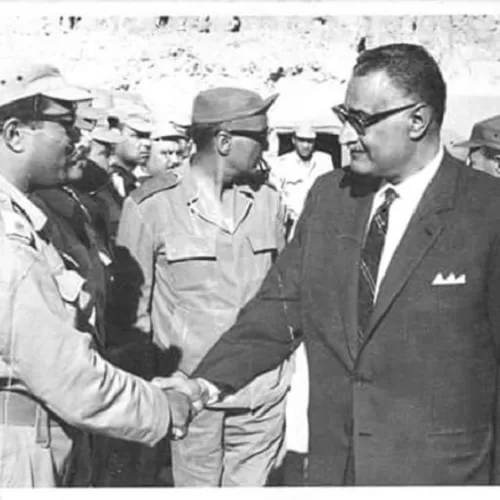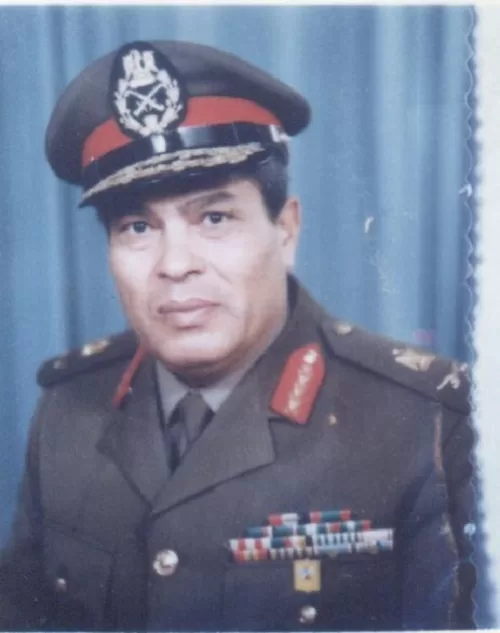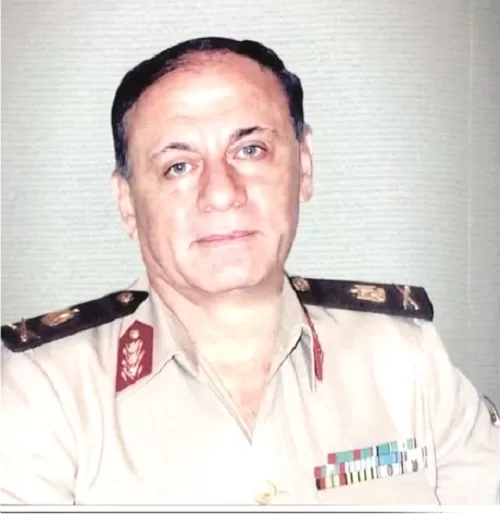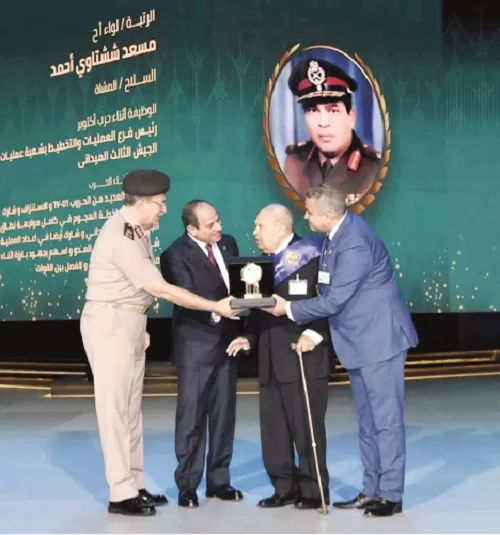By Sarah Saad
Since its establishment, the Armed Forces Department of Morale Affairs has played a major enlightening role in times of peace and war, directly impacting the spread of awareness over the past years.
This maintains the department’s great role from its inception until today, including its efforts during the October 1973 War.

The department, with its highly professional team, has been able to overcome many challenges in the past and at present.
The Department of Morale Affairs was established in the 1930s under the name ‘Public Affairs Office’.
At that time, it played a significant role in media and entertainment within the Egyptian army.
Its performance evolved following the July 1952 Revolution and it was restructured under the name Public Affairs Department, with its headquarters in Abdeen, Cairo.
In 1960, it moved to its current location in Heliopolis. The department underwent several organisational changes and was given the name ‘Department of Morale Affairs and Psychological Guidance’.
After the June 1967 War, a new strategy was put in place with specific goals to raise morale, as the rebuilding and reorganisation process went through many challenging stages to unite and regroup the forces.
Following the October 1973 victory, the department was officially named ‘Department of Morale Affairs’.
Staff Officer Mossad al-Shishtawi, military media advisor to the Director of the Department of Morale Affairs, said the high morale of army troops was one of the key factors behind the October 1973 victory.
“It demonstrated the troops’ ability to face events and co-operate with others to achieve victory,” he added.

Al-Shishtawi highlighted the role of the Department of Morale Affairs as one of the general command’s branches responsible for preparing the troops mentally and emotionally, fostering loyalty, and instilling a sense of belonging among military personnel to enable them to carry out their duties in times of peace and war.
It also, he said, coordinates the Armed Forces’ activities in public awareness, media, and culture with other relevant state institutions.
Egyptian media, both civilian and military, played a crucial role in preparing for the October 1973 War, marking a stark contrast to the situation during the June 1967 War.
The media expanded its influence regionally and internationally, exposing Israeli intentions and engaging with Arab and global events.
The media gained public trust, especially during the War of Attrition and the October 1973 War, despite not being able to cover the latter directly due to the Egyptian leadership’s commitment to secrecy to maintain the element of surprise on October 6.
The morale-building efforts and psychological treatment to erase the effects of the 1967 defeat were crucial, he said.
They served as the driving force that propelled soldiers and leaders alike towards victory or martyrdom, he added.
The war would not have been possible without creating a strong sense of motivation within the soldiers and the carefully selected leadership.
The Department of Morale Affairs successfully transformed latent energy into active strength, fostering trust among soldiers and between them and their leaders, which helped cross the Suez Canal, overcome the barriers of steel and fire, and shatter the myth of the invincible Israeli army.
The department also played an essential role in the psychological warfare, which was no less fierce or important than the military battle on the front lines. Many military theories suggest that psychological warfare, led by specialised units, is even more critical than the war itself.
Al-Shishtawi explained the role of the Department of Morale Affairs in the preparation and planning for the October 1973 War, including executing the morale mobilisation plan and advancing psychological operations to cover developments on the front lines while addressing any negative aspects.
In addition, the department issued ‘Fact Bulletins’ to prepare the state and citizens for defence and war, gathered information, organised conferences, and highlighted the high military and morale capabilities of the Armed Forces.
After the cessation of hostilities, the department provided media coverage, supported by photographs and audio recordings of the victories achieved by the Egyptian Armed forces, in coordination with Arab and foreign media outlets.
The Department of Morale Affairs also honoured the war heroes, including the wounded and the families of martyrs, and published booklets and bulletins that recounted the stories of the martyrs who sacrificed their lives for the sake of the nation.
Maj. Gen. Samir Farag, former director of the Department of Morale Affairs and strategic expert, said the department is the source of military newsletters and magazines distributed to Egyptian military personnel.
It is the media front for the Armed Forces, releasing any official news related to them, he added.







Discussion about this post